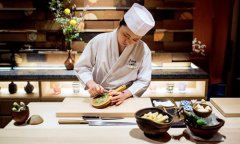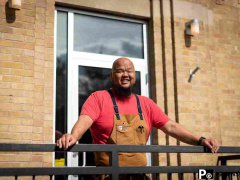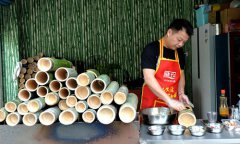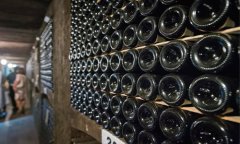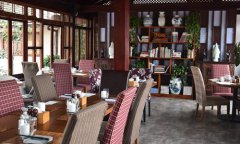
Enlarge this image
James Beard award-winning chef Alexis Nikole Nelson harvests wild food while building a community of plants and people. Alexis Nikole Nelson hide caption
toggle caption Alexis Nikole Nelson
James Beard award-winning chef Alexis Nikole Nelson harvests wild food while building a community of plants and people.
Alexis Nikole NelsonNational A city park means green space and a place to forage for meal ingredients
A city park means green space and a place to forage for meal ingredients
Listen · 6:52 6:52
Toggle more options
Download
Embed
<iframe src="https://www.npr.org/player/embed/1221762077/1221762078" frameborder="0" scrolling="no" title="NPR embedded audio player">
Transcript
One way that people connect with their heritage is through food, and for some that means eating wild food. While there isn't an organization that tracks foraging nationally, longtime foragers, and the popularity of online foraging videos, will tell you that enthusiasm for the activity is growing.
Douglas Kent is the author of Foraging Southern California. On a recent visit to Ken Malloy Harbor Regional Park, near the Port of Los Angeles, he told NPR's A Martinez that we are surrounded by plants that can be used in many ways.
"Health and wellbeing, superfoods and digestion, dyes and fibers and painkillers and all kinds of stuff," Kent said.

Enlarge this image
Forager Douglas Kent and NPR's A Martinez in front of arroyo willow and Mexican fan palm at Ken Malloy Harbor Regional Park in Los Angeles. Alice Woelfle/NPR hide caption
toggle caption Alice Woelfle/NPR
Forager Douglas Kent and NPR's A Martinez in front of arroyo willow and Mexican fan palm at Ken Malloy Harbor Regional Park in Los Angeles.
Alice Woelfle/NPRKent teaches ecological land management at Cal Poly Pomona. But in his spare time he fills his house with dyes, medicines and cordage from local plants that have been used for thousands of years.
"So willow and the fan palm ... would have been our roofing, our sides, our backpacks, our sandals. This plant would have been just absolutely essential to early humans here," Kent said.
For Columbus, Ohio, forager Alexis Nikole Nelson, that connection with the past is part of the appeal.

Code Switch Meet Alexis Nikole Nelson, The Wildly Popular 'Black Forager'
"It feels like it's not only serving me in the present, but it feels like I am doing better by a lot of my ancestors," Nelson told NPR's Morning Edition.
This is particularly significant for Nelson as a Black person who has immersed herself in the history and politics of foraging in the United States. She talks about the fraught relationship Black people in the United States have to outdoor spaces and wild food knowledge that goes back to times of enslavement, when foraging was an important way for those who were enslaved to round out a meal.
YouTube
When she goes out, she prefers to wear frilly dresses, lots of makeup and flowers in her hair. While the cottagecore fairy princess look is an expression of her personal style, Nelson believes it also helps keep her safe. Despite having nearly 6 million followers on TikTok and Instagram, she says some people in her neighborhood might not be comfortable seeing a Black person doing an activity they can't immediately identify.
"I would always rather have someone come up to me and ask what I'm doing before, like calling the police or, you know, calling a park ranger," she said.



